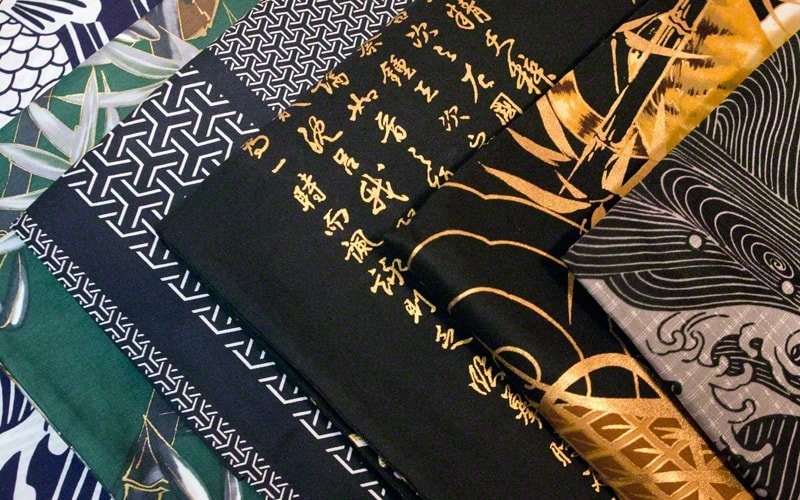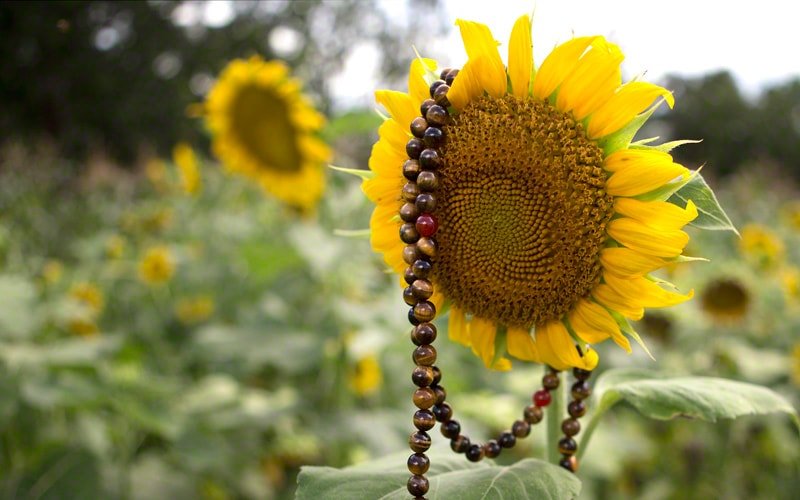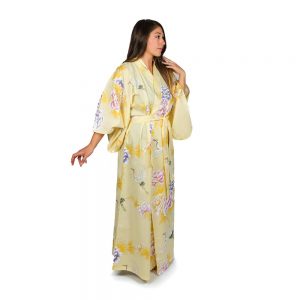Ron Irving is a Managing Partner of Chopa – Your Kimono Source. Established in 1994, Chopa continues to be a leading provider of authentic Japanese Kimonos and Yukata robes. Ron recently sat down for a one-on-one interview with a live audience at a business trade show. We are pleased to share some excerpts from this fascinating interview. This is part 2.
How do you know which kimono or yukata to wear?
I like to tell people it is a personal choice. With that, there are some caveats. The Japanese kimono was originally a formal garment most commonly made of silk. It was typically worn by women on important occasions, such as weddings and funerals. Yukata, on the other hand, are casual kimonos that are made of lighter materials, such as cotton, linen, or polyester. Yukata are typically worn in the summer months and at festivals. Because they are less formal than kimonos, yukata are more commonly seen in everyday life.
When choosing a kimono or yukata, it is important to consider the occasion. If you are attending a wedding or funeral, it is appropriate to wear a kimono. For more casual occasions, such as summer festivals, a yukata would be more appropriate. And if you’re not sure which one to wear, it’s always best to err on the side of caution and go with a kimono.
With these guidelines in mind, you’ll be sure to find the perfect kimono or yukata for any occasion. If you are wearing it at home or small gatherings with friends and family, either style works. In the western world, we tend to prefer comfort over all else.
What’s the difference between kimonos and yukatas?
Kimonos and yukatas are both Japanese garments that are worn on special occasions. However, there are some key differences between the two. Japanese kimonos are made from a variety of different materials, including silk, cotton, and linen. They are often brightly colored and feature intricate patterns.
Yukatas, on the other hand, are made from a single piece of fabric and are typically made of cotton. The fabric is also much lighter, making it more comfortable to wear in warm weather. In addition, kimonos are generally more formal than yukatas and are often worn to weddings and other special events. Yukatas, on the other hand, can be worn for a variety of different occasions, including festivals and fireworks displays.
What is your favorite Japanese kimono?
That isn’t a fair question. Japanese kimonos are some of the most beautiful and intricate garments in the world. I have always been fascinated by their design. If I had to select a favorite I would go with a yukata. Yukata are made of lightweight cotton, and they are typically worn in the summer. They are also often worn at Japanese festivals.
I love the way that yukata flows when you wear them, and I love the bright, vibrant colors that are typically used in their design. Kimono yukata are truly works of art, and I am proud to own one. I am normally warmer-blooded so the lighter-weight style works best for me. It is a personal choice. I always recommend that customers buy what they like and prefer. Don’t let someone else’s style or opinion influence you.
What do you think sets Japanese kimonos apart from other types of traditional clothing around the world?
Japanese kimonos are renowned for their beauty and elegance, setting them apart from other types of traditional clothing around the world. Formal kimonos are made of high-quality silk, which is dyed using a variety of methods to create intricate patterns. The kimono is also cut in a way that flatters the figure, and it is usually worn with an obi or sash, that cinches the waist.
In addition, Japanese kimonos are often accessorized with beautiful jewelry and hair combs. Yukata are a type of Japanese kimono that are made of lighter fabric and are typically worn in the summer. Kimono yukata are a hybrid of the two, and they are made of medium-weight fabric that can be worn in either spring or autumn. No matter what the season, Japanese kimonos are always a fashion statement.
This is Part two in a series. Ron Irving has been an integral part of Chopa for many years. His understanding of the kimono has been so beneficial to our company and our customers. Shop our online store 24 hours a day. Check back again soon for Part 3 of his interview.
Tags: kimono for men, men yukata, Men's Kimono, yukatas for men









Great articles. Thank you.